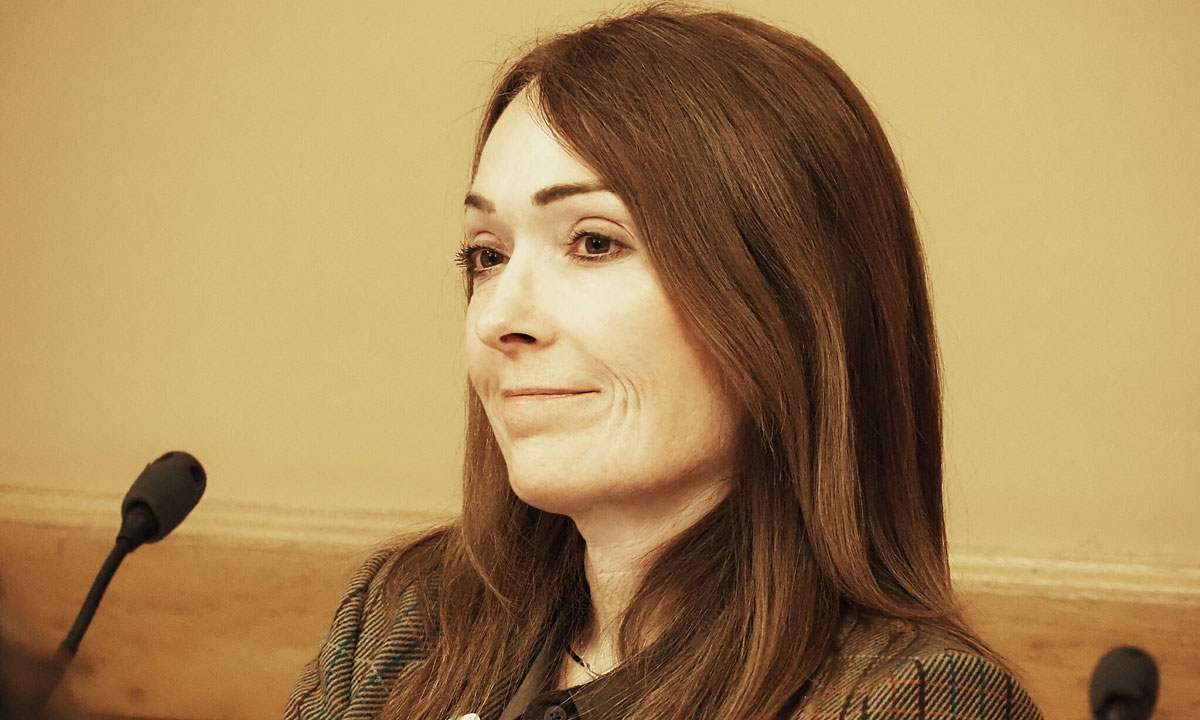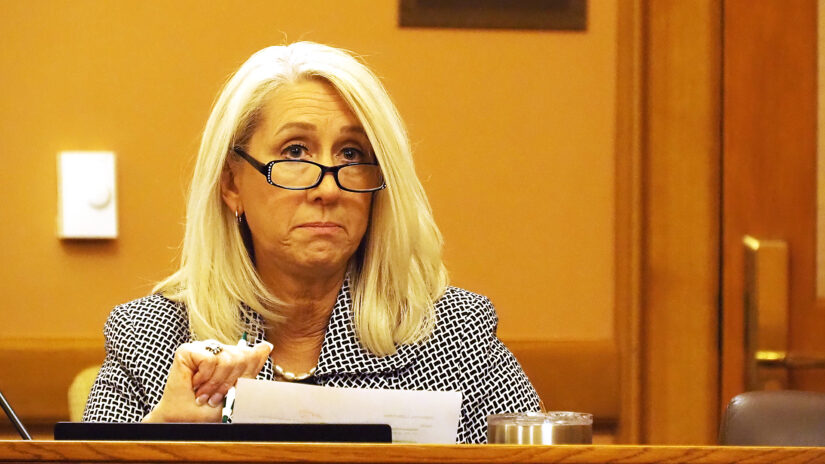Kansas Special Ed Task Force to Finally Convene for Study of Funding Shortfall
GOP legislators question merit of a task force mandated by statute.

Get stories like this delivered straight to your inbox. Sign up for The 74 Newsletter
TOPEKA — Rep. Kristey Williams and Sen. Renee Erickson agreed there was little value in convening a task force to study the state’s shortfall in funding public school special education programs because the financial issues were too complex and the only remedy suggested by education advocacy groups was too simplistic.
The lawmakers said it would be folly to hold hearings of the Special Education and Related Services Task Force with legislators, teachers, parents and other stakeholders to gather testimony and shape recommendations on a fix for the 2024 Legislature.
The goal of the task force, required by a bill approved by the 2023 Legislature, was to figure out how best to comply with an older statute mandating that state funding cover 92% of the extra cost of providing services to K-12 special education students statewide. Currently, state aid was sufficient to address 69% of school districts’ excess special education costs. The balance must be made up by local school districts.
“There is no way a funding task force could begin to crack that code,” said Williams, an Augusta Republican.
Erickson, a Wichita Republican, said the Kansas State Board of Education and an assortment of public education organizations had offered one remedy to the 92% dilemma — appropriation of nearly $200 million annually to close the gap.
“We do not need a special education task force meeting to consider their position,” she said. “We have their input, which is just more money. We don’t need a task force to convene to discuss that part.”
On Friday afternoon, however, Williams and Erickson were expected to sit down with others on the task force for their first and, perhaps, only meeting. The gathering might not have occurred had a six-person majority of task force members not invoked parliamentary procedure in November to force Williams’ hand. She relented and set the meeting for three days prior to start of the 2024 session.

Task force rebellion
Interim legislative meetings typically take place in summer and fall to give committee members time to write reports pulling together expert testimony and outlining reform proposals for review by lawmakers during the next legislative session.
Williams, who was placed in charge of the task force pending the members’ election of a chair, said a mere two hours would be dedicated to oral testimony of subject-matter experts and for task force deliberations. She said written testimony would be accepted by the task force comprised of five members of the House or Senate — four Republicans, one Democrat — and six people not in the Legislature.
The list of 13 given a chance to speak for five minutes each to the task force included people with the Kansas Association of School Boards, Kansas National Education Association, Kansas PTA, Game On for Kansas Schools as well as the Kansas State Department of Education and the Kansas Policy Institute. School administrators and a teacher will be given a turn at the microphone, but its not clear the task force could comprehensively take input, consider options and prepare recommendations for legislators in 120 minutes.
The first order of business must be to select a chairperson of the task force. Legislators, lobbyists and educators said that step became a flash point several months ago when it appeared Williams lacked votes among task force peers to retain the position of task force chair. In response, special education advocates said, Williams stonewalled and publicly expressed skepticism the task force was worthwhile.
In an interview in October, Louisburg GOP Sen. Molly Baumgardner, who chairs the Senate Education Committee, dismissed that theory. She said the delay wasn’t inspired by Williams’ unwillingness to give up narrative control of the task force.
“Anytime you’re trying to schedule when we’re not in session, it is a real juggling match to get folks together,” said Baumgardner, who is on the special education task force. “You’re trying to satisfy a variety of different schedules so that the largest number of folks can be there and participate and we’ve had some problems with interim meetings, just scheduling times.”
A majority of the task force made multiple requests of Williams to move ahead with the task force’s work before deploying a procedural maneuver to compel the meeting. Williams set the meeting for 1 p.m. to 3 p.m. Friday in Room 112-North of the Capitol.
‘Not … going away’
Kansas spends more than $500 million annually in federal, state and local funding on special education services in public schools, but hasn’t complied with the 92% requirement since 2011. However, the statute didn’t include enforcement mechanisms to compel the Legislature to meet the obligation.
The idea of convening a task force was viewed as an alternative to the 2023 Legislature dealing with a situation in which districts had to pull money from the general education budget to fill the special education gap. Instead of allocating $182 million to meet the statewide shortfall in the 2023-2024 school year, the Legislature agreed to increase appropriations for special education by $7.6 million for the year.
Gov. Laura Kelly, a Democrat, endorsed a plan to add $72 million in 2024 to initiate a five-year plan to surge special education aid to 92%. The state Board of Education preferred a four-year strategy that would infuse $82 million annually to reach that threshold.
Williams and other legislators rejected the phased concepts and endorsed appointment of a task force on special education. She also urged the Legislature to complete a rewrite of the state’s special education funding blueprint by 2027.
Rep. Adam Thomas, an Olathe Republican on the task force, said he was convinced the Legislature had to rework the state’s special education formula to correct inconsistencies in distribution of money to districts.
“The formula itself is confusing. There’s some flaws in statute,” he said. “Obviously, we know after all these conversations about special ed, it’s not something that’s going to go away.”
Kansas Reflector is part of States Newsroom, a network of news bureaus supported by grants and a coalition of donors as a 501c(3) public charity. Kansas Reflector maintains editorial independence. Contact Editor Sherman Smith for questions: info@kansasreflector.com. Follow Kansas Reflector on Facebook and Twitter.
Get stories like these delivered straight to your inbox. Sign up for The 74 Newsletter

;)